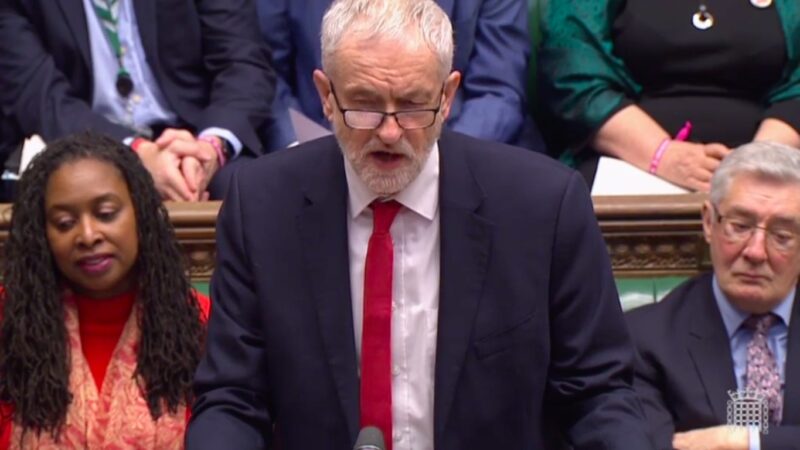
“Poor leadership is nothing new to this Prime Minister.” That was the message from Jeremy Corbyn as he attacked Boris Johnson, for the second week running, on his failure to take action on the climate emergency. With the spectre of the 26th Conference of the Parties (COP26) in Glasgow looming later this year, a handy letter from the recently sacked Tory minister Claire O’Neill equipped the Labour leader with plenty of ammunition in Prime Minister’s Questions today.
O’Neill said there has been a “huge lack of leadership and engagement from this government” on the climate conference, Corbyn quoted, before asking: “What on earth did she mean?” It will be 2099 before the country meets its net zero carbon policy, he explained to the PM once again – he also cited this indictment of the government’s response to the climate crisis last week. This is the first country to have set such a target, Johnson countered – a target that the government is missing, came the rebuttal from Corbyn. And he threw the PM’s previous comments on climate change in his face: the Labour leader brandished a column Johnson had written in which he’d called climate change a “primitive fear without foundation”.
But none of the attacks stuck, and the PM continued on unimpeded with repeated exclamations that our country and this government is “delivering a fantastic agenda on climate change”. To hear him speak, you wouldn’t think there was any problem at all. Johnson told the leader of the opposition that the UK is showing “world leadership”. He said that Corbyn was talking nonsense, and cited a “grotesque failure of the leader of the opposition to understand what’s happening in this country’s economy”. In his usual fantastical fashion, the PM claimed that Labour had said it would confiscate people’s cars and stop them having holidays, before saying that the party’s policies on climate change had been “utterly unclear”.
This is, of course, unfounded. A large part of the Labour manifesto was taken up by proposals for a green industrial revolution that would have created a million new jobs, rebooted British industry with renewable energy, home upgrades, metal reprocessing plants, grid upgrades, tree planting and new infrastructure projects to defend against flooding. And this is a policy that polls well. It may well be that in the future we look back on the 2019 general election and regret having prioritised Brexit over the climate emergency. Regardless, the public are increasingly concerned about climate change and it’s not likely that we’ll see any of the candidates to be the next Labour leader abandoning it as a focal point.
While each Labour leadership hopeful has said that climate policy would be central to their leadership, it remains to be seen how much of the manifesto they keep, however. Emily Thornberry has said that the UK should be a “world leader” on the climate emergency; Keir Starmer has stated that climate policy should be “hardwired” into everything Labour does; Lisa Nandy has called for a “pragmatic” approach to the climate crisis, rooting policies in people’s everyday lives. Rebecca Long-Bailey has the advantage of being the Shadow Business, Energy and Industrial Strategy Secretary who led on the development of Labour’s green new deal policy. And she has said that it was “tragically undersold” during the campaign. The opportunity of the green industrial revolution policy is that the candidates can frame an entire policy platform through it – from housing, to jobs, to public services. But none of them has done this, and which bits of the green industrial revolution they will each hold onto is as yet unclear.




More from LabourList
‘A case for hope amid hard times’
Eluned Morgan splits with Sarwar and backs Prime Minister
‘Putting our values into action: Labour should make social security work for everyone who needs it’